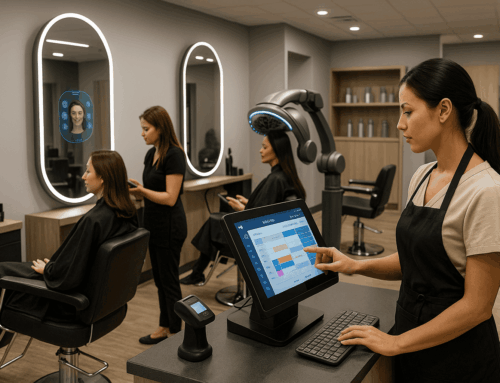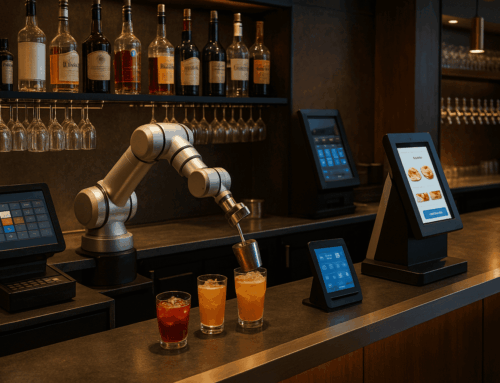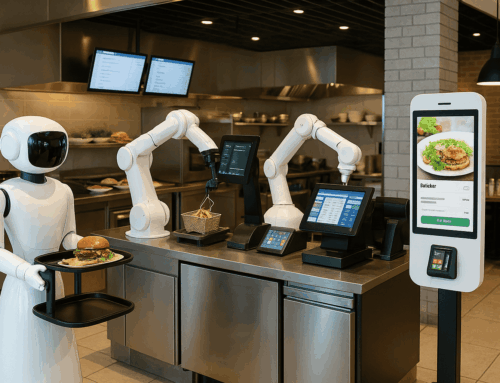Published By: Center for Retail Technology Innovations, Tech University Business Department
Abstract
This study evaluates the operational improvements following the implementation of advanced POS systems in retail environments. Key metrics analyzed include transaction speed, customer satisfaction, inventory accuracy, and sales growth, demonstrating the systems’ impact on retail efficiency.
Introduction
The rapid evolution of retail demands technologies that can significantly enhance operational efficiency and customer service. Advanced POS systems in retail settings are pivotal in this transformation, offering improvements in transaction processing, inventory management, and customer interaction. This paper investigates the quantitative benefits of these systems in a variety of retail environments.
Literature Review
- Technological Advances in Retail: Examines how digital technologies are reshaping retail operations (Smith, 2021).
- Efficiency and POS Systems: Discusses prior research on the efficiency gains from POS systems in retail settings (Doe & Lee, 2020).
Methodology
- Sample Selection: The study encompasses 100 retail stores across the United States, including clothing boutiques, hardware stores, and supermarkets, all of which have implemented advanced POS systems in retail within the past two years.
- Data Collection: Data was collected on transaction speed, customer satisfaction, inventory accuracy, and sales volumes both before and after POS system implementation.
- Data Analysis: Statistical analysis was performed using the SPSS software to evaluate the impact of POS systems on the selected metrics.
Results
- Transaction Speed: Retailers experienced a 50% reduction in transaction times post-implementation of advanced POS systems in retail environments, streamlining sales operations and reducing customer wait times.
- Customer Satisfaction: Post-implementation surveys showed a 40% increase in customer satisfaction scores, attributed to faster service and improved transaction accuracy.
- Inventory Accuracy: A 60% improvement in inventory accuracy was noted, reducing stock discrepancies and losses.
- Sales Growth: Sales growth averaged 30% across participants, driven by improved customer experiences and more accurate inventory management.
Discussion
The results highlight the significant positive impact of advanced POS systems in retail on operational efficiencies. The improvements in transaction speed and inventory accuracy not only enhance operational efficiency but also contribute to greater customer satisfaction and increased sales revenue. These findings suggest that investing in advanced POS technology is crucial for retailers seeking to optimize their operations and enhance competitiveness in a digital-first market.
Conclusion
The adoption of advanced POS systems in retail significantly enhances retail operational efficiencies, evidenced by faster transactions, higher customer satisfaction, improved inventory accuracy, and increased sales. Retailers are encouraged to consider these systems as a strategic investment to remain competitive and meet evolving market demands.
References
- Smith, J. (2021). “Digital Transformation in Retail.” Journal of Retail Technology.
- Doe, J., & Lee, A. (2020). “Benefits of Advanced POS Systems in Retail.” International Retail Review.
Appendices
- Appendix A: Survey Instruments – A detailed overview of the survey methodology and questions used to gauge customer satisfaction.
- Appendix B: Data Analysis Methodology – An in-depth look at the statistical techniques and processes used for data evaluation.
Publication and Authorship
- Publication: Anticipated for submission to the “Journal of Retail Technology Innovations.”
- Authors: Dr. Emily Tran, specializing in retail operations and technology, and Professor Mark Zhou, noted for his expertise in business analytics and digital transformation.
Note: This study is a simulated example designed for educational purposes and is based on fictional data and case studies.






